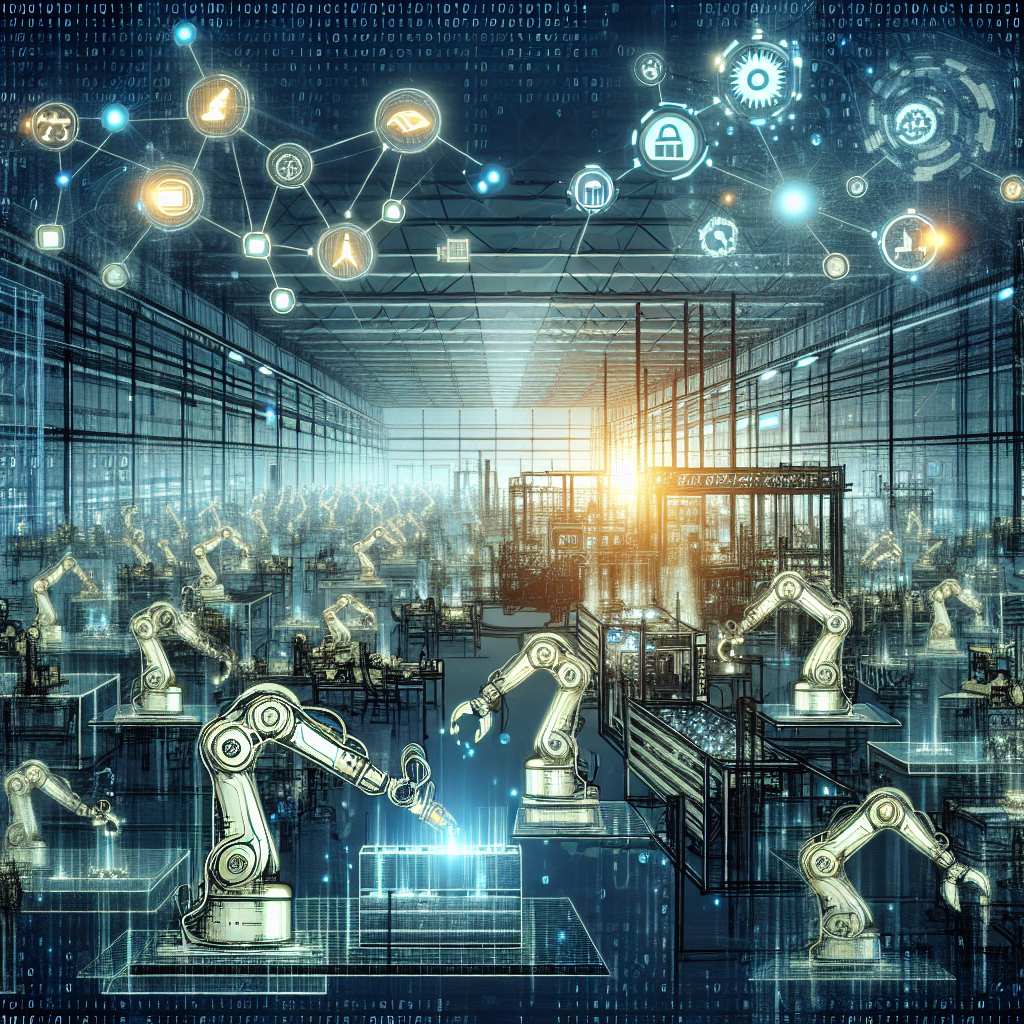The Benefits of AI and Machine Learning in Manufacturing
In recent years, artificial intelligence (AI) and machine learning have been revolutionizing various industries, and manufacturing is no exception. These technologies have the potential to significantly improve efficiency, productivity, and quality in the manufacturing sector. From predictive maintenance to quality control, AI and machine learning are transforming the way manufacturers operate. In this article, we will explore the benefits of AI and machine learning in manufacturing and how they are reshaping the industry.
1. Predictive Maintenance
One of the key benefits of AI and machine learning in manufacturing is predictive maintenance. By analyzing data from sensors and machines, AI algorithms can predict when equipment is likely to fail, allowing manufacturers to schedule maintenance before a breakdown occurs. This proactive approach to maintenance helps reduce downtime, improve overall equipment effectiveness, and extend the lifespan of machines. Predictive maintenance can also save costs by avoiding costly repairs and replacements.
2. Quality Control
AI and machine learning can also enhance quality control processes in manufacturing. By analyzing data from production lines and identifying patterns and anomalies, AI algorithms can detect defects and deviations from quality standards in real-time. This allows manufacturers to address issues promptly and improve product quality. AI-powered quality control systems can also help reduce waste and improve customer satisfaction by ensuring that only high-quality products are delivered to the market.
3. Process Optimization
AI and machine learning can optimize manufacturing processes by analyzing large volumes of data and identifying opportunities for improvement. By analyzing data from production lines, supply chains, and customer feedback, AI algorithms can identify bottlenecks, inefficiencies, and areas for optimization. This allows manufacturers to streamline processes, reduce waste, and improve overall efficiency. AI can also help manufacturers make data-driven decisions to optimize production schedules, inventory management, and resource allocation.
4. Supply Chain Management
AI and machine learning can improve supply chain management in manufacturing by analyzing data from suppliers, logistics, and inventory. By predicting demand, optimizing inventory levels, and identifying potential risks, AI algorithms can help manufacturers improve supply chain efficiency and resilience. AI-powered supply chain management systems can also enhance visibility, collaboration, and decision-making across the entire supply chain. This can help manufacturers reduce costs, improve customer satisfaction, and adapt quickly to changing market conditions.
5. Product Design and Development
AI and machine learning can also play a crucial role in product design and development in manufacturing. By analyzing customer preferences, market trends, and feedback data, AI algorithms can help manufacturers design products that meet customer needs and preferences. AI can also help manufacturers optimize product features, materials, and manufacturing processes to improve quality, performance, and cost-effectiveness. By using AI to analyze data and simulate scenarios, manufacturers can accelerate innovation and bring new products to market faster.
6. Worker Safety and Productivity
AI and machine learning can improve worker safety and productivity in manufacturing by analyzing data from sensors, wearables, and other sources. By monitoring worker behavior, identifying risks, and providing real-time feedback, AI algorithms can help prevent accidents and injuries in the workplace. AI-powered systems can also assist workers in performing tasks more efficiently and accurately, reducing human errors and improving overall productivity. By enhancing worker safety and productivity, AI can create a safer and more productive working environment for manufacturing employees.
7. Environmental Sustainability
AI and machine learning can also contribute to environmental sustainability in manufacturing by optimizing resource usage, reducing waste, and minimizing environmental impact. By analyzing energy consumption, emissions, and other environmental data, AI algorithms can help manufacturers reduce their carbon footprint and comply with environmental regulations. AI-powered systems can also help manufacturers identify opportunities for recycling, reuse, and waste reduction, leading to a more sustainable and environmentally friendly manufacturing process.
FAQs
Q: How can AI and machine learning improve efficiency in manufacturing?
A: AI and machine learning can improve efficiency in manufacturing by analyzing data, identifying patterns, and optimizing processes. By automating repetitive tasks, predicting maintenance needs, and optimizing production schedules, AI algorithms can help manufacturers reduce downtime, improve productivity, and streamline operations.
Q: What are the key challenges in implementing AI and machine learning in manufacturing?
A: Some of the key challenges in implementing AI and machine learning in manufacturing include data quality, integration with existing systems, and workforce training. Manufacturers need to ensure that their data is accurate, relevant, and accessible to AI algorithms. They also need to integrate AI systems with existing processes and systems to maximize their impact. Workforce training is also crucial to ensure that employees are comfortable using AI tools and technologies.
Q: How can manufacturers get started with AI and machine learning?
A: Manufacturers can get started with AI and machine learning by identifying their business goals and challenges, evaluating their data infrastructure, and exploring AI solutions that meet their needs. They can start small with pilot projects, collaborate with AI experts and vendors, and gradually scale up their AI initiatives as they gain experience and expertise.
In conclusion, AI and machine learning have the potential to transform the manufacturing industry by improving efficiency, quality, and sustainability. By leveraging AI algorithms to analyze data, optimize processes, and enhance decision-making, manufacturers can stay competitive, innovate faster, and adapt to changing market conditions. As AI technologies continue to evolve, manufacturers need to embrace AI and machine learning to unlock their full potential and drive future growth and success.

